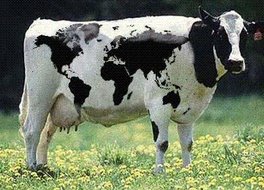The point is, again, how much can we trust epi studies? We can design a study to say almost anything; whether we can get it published is another issue. Should you refute a published study with an unpublished study? Or is it, as they imply, refuting a p.c. study with a politically blocked study?
New cancer report says limit red and processed meat; industry disagrees By Janie Gabbett on 10/31/2007 for Meatingplace.com
A new report by the World Cancer Research Fund/American Institute for Cancer Research suggests limiting intake of red meat and avoiding processed meat as one of ten recommendations to reduce cancer risk.
The report, which updates the group's 1997 findings and reviewed over 7,000 studies, said it found that both red meat (defined as beef, pork, lamb and goat) and processed meat (defined as meat preserved by smoking, curing or salting or chemical preservatives) increased risk of colorectal cancer if eaten in large quantities.
It cautioned people who eat red meat to consume less than 500 grams (18 ounces) of cooked red meat a week and that they consume "very little, if any" processed meat, such as bacon, ham, sausage and lunchmeat.
"The panel emphasizes that this overall recommendation is not for diets containing no red meat or diets containing no foods of animal origin," the report said, noting that meat can be a valuable source of protein, iron, zinc and vitamin B12.
"An integrated approach to the evidence also shows that many foods of animal origin are nourishing and healthy if consumed in modest amounts," it said.
The report pointed to excess body fat as a major cancer risk and noted that, "diets with high levels of animal fats are often relatively high in energy, increasing the risk of weight gain." It linked excess body fat to cancers of the esophagus, pancreas, colon and rectum, endometrium and kidney, along with breast cancer in post-menopausal women.
To view the entire report, click here.
Industry response
The American Meat Institute (AMI) said the study's meat intake recommendations, "reflect WCRF's well-known anti-meat bias and should be met with skepticism because they oversimplify the complex issue of cancer, are not supported by the data and defy common sense."
"Given the complexities and conflicting research findings, it is inconceivable that WCRF could draw definitive conclusions and make such precise recommendations about specific food categories," said AMI Foundation Vice President of Scientific Affairs Randy Huffman, noting the causes of cancer involve factors like genetics, the environment, lifestyle and a host of other issues.
AMI also disputed the report's recommendations on processed meats. "Our own systematic review of the literature by independent epidemiologists has documented that 15 of 16 comparisons regarding processed meat and colorectal cancer were not statistically significant," said Huffman.
Harvard data
Huffman also questioned why WCRF didn't take into account a 2004 Harvard School of Public Health analysis that concluded that red meat and processed meat were not associated with colon cancer.
He said the Harvard study, involving 725,000 men and women, was presented at the 2004 American Association for Cancer Research Conference in abstract form but never has been published in its entirety.
Huffman called the Harvard paper, Meat and fat intake and colorectal cancer risk: A pooled analysis of 14 prospective studies, the largest study ever done on red meat and colon cancer. He said lawmakers are now asking Harvard why the study has not been published, given its completion three years ago and its federal funding.
Thursday, November 01, 2007
The title says it all
Yep, no surprises here:
Subscribe to:
Post Comments (Atom)

No comments:
Post a Comment